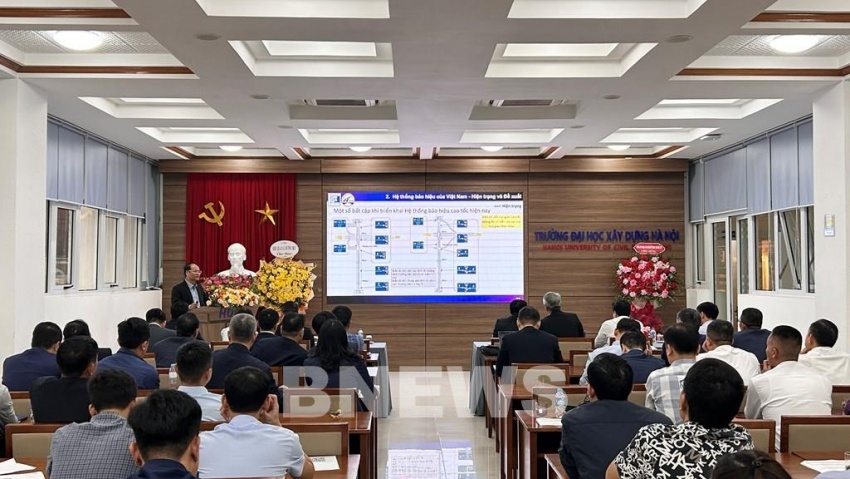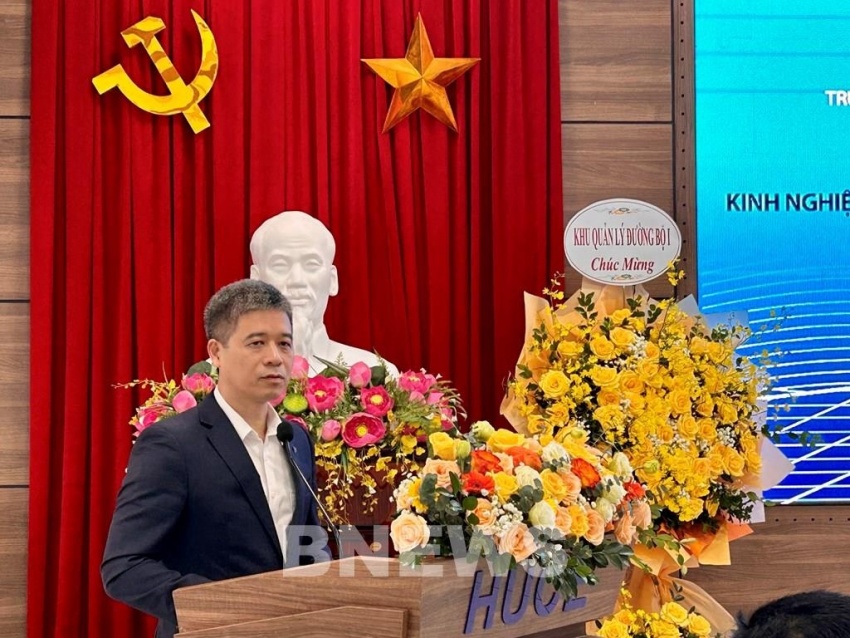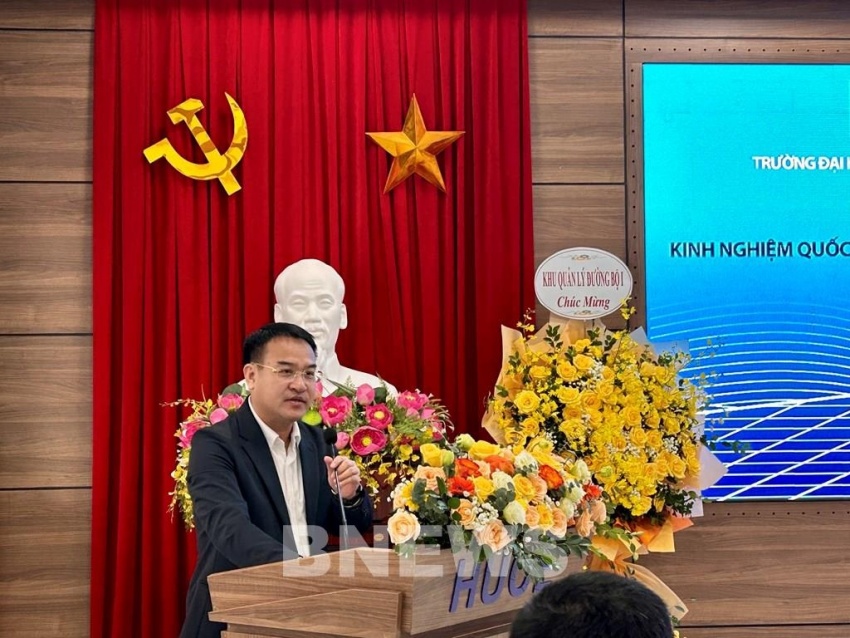The Vietnam Road Administration (VRA), in cooperation with the University of Construction, held a conference on November 10 to discuss international experience in expressway management and operations.
 |
| Photo: Ministry of Construction |
In his opening speech, Assoc. Prof. Dr. Hoang Tung, rector of the University of Construction, explained that Vietnam's transport infrastructure has developed strongly, especially the expressway network with a scale of nearly 3,000km expected by the end of 2025 and 5,000km by 2030. In that development journey, it is necessary to determine that the management and operation of expressways must meet the criteria of 'safety - intelligence - sustainability'.
“The contents discussed today support the completion of mechanisms, standards and operational organisational models, while guiding the development of a safe, smart and sustainable expressway system, suitable for the requirements of modernizing the transport industry in the new development period,” said Tung.
 |
| Assoc. Prof. Dr. Hoang Tung, rector of the University of Construction |
According to VRA, the expressway system is helping to reduce the load on national highways, shorten travel times and reduce logistics costs. However, with an average traffic growth rate of 15-18 per cent a year, and in some places over 30 per cent, many new problems arise in operations, traffic organisation, and safety assurance.
In particular, local congestion often occurs at major urban entrances, toll stations, and intersections with national highways, while the intelligent transport system (ITS) has not been deployed synchronously.
Nguyen Tien Hong, deputy head of the Traffic Management and Organisation Department under the Vietnam Road Administration, said the expressway network is shifting from route-based to network-based management, from manual monitoring to digital operations, and from isolated solutions to integrated systems linking ITS, key performance indicators, safety, and capacity.
“This transition requires a unified institutional framework, shared technical infrastructure, and a central data platform to enable coordinated, efficient, and sustainable expressway management for the 2026–2035 period,” he added.
Nguyen Hoai Thanh, deputy head of VRA admitted that expressways in the country have been invested in over many periods with different scales and technologies, posing great challenges in management, operation and maintenance.
 |
| Nguyen Hoai Thanh, Deputy head of VRA. Photo: University of Construction |
“To move forward, Vietnam needs to access new technology to operate and operate the expressway system synchronously with the goal of safety, intelligence, efficiency and sustainability,” he said.
To advance smart expressway management, the Vietnam Road Administration is developing a shared data platform that integrates information from management centres, toll stations, surveillance cameras, and sensors. The system enhances monitoring, incident detection, and decision-making accuracy and speed.
Dr. Nguyen Thi Thu Nga from the University of Transport Technology noted that traffic management and safety must now move beyond condition-based maintenance towards performance-based management – a trend reflected in global policy frameworks by PIARC, Organisation for Economic Co-operation and Development/ITF, Japan International Cooperation Agency, FHWA, and leading models in South Korea, Japan, the United States, and Europe.
Experts at the event also stressed that expressway sustainability must align with efficient investment. Maintenance should be treated as part of the project life cycle, with management units and investors bearing long-term responsibility for quality and operational performance.

















































